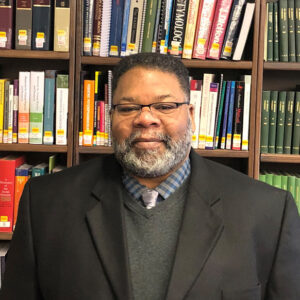We delighted to feature Michael Wallace, PsyD, LLP in our latest Faculty Spotlight. Dr. Wallace is on the Core Faculty and is teaching Humanistic Psychology & Psychotherapies in the PsyD program.
 Where did you grow up?
Where did you grow up?
I was born in Ann Arbor, MI, a small Midwestern town and the home of the University of Michigan Central Campus. Ann Arbor was a great place to grow up. I received a pretty good public-school education, lots of parks, a good public library, and variety of community resources. I learned how to swim at the YMCA, I spent my summers playing baseball, basketball and tennis. In the fall, I played football and, in the winter, I ice skated and played pick-up hockey. I fished in the Huron River and the nearby lakes. I occasionally cut class and would roam the halls at UM with I would sit in on lecture or watch foreign films with the graduate students. As long as I wasn’t nuisance, the professors didn’t seem to mind. Technically, I suppose my family was economically poor but socially I grew up middle-class.
What or who influenced you to study psychology?
I have always possessed a natural ability to connect with people to listen to their concerns, to help them sort out their problems. Even in high school a number of my school projects involved trying to understand racial attitudes were formed. As an undergraduate I was exposed to theories of the early practitioners like Freud, Jung, Sullivan, Bettelheim and Klein. Then, as a master’s level graduate student I became fascinated with the practical application of clinical psychology which led me to the field of humanistic psychology and the writings of practitioners and theorists like Bugental, Moustakas, Rogers, and Maslow.
What are your research and/or clinical interests?
Clinically, I am most interested in how psychology can be used most effectively to help relieve or alleviate psychological suffering, and to assist clients in attaining their healthiest levels of human functioning that result in living their best lives.
What appeals to you most about teaching at MSP?
What appeals to me most about teaching at MSP is having the opportunity to be a part of a unique program that is centered around the principles of humanistic psychology and values of humanism. I derive a tremendous amount of satisfaction in participating in the learning process as students acquire knowledge, develop critical thinking skills, begin their journey to become skilled psychotherapists and become emissaries of the philosophies of humanistic psychology.
What is your favorite non-academic book and why?
It would be hard for me to single out one book as my favorite. However, one book that has stood the test of time is To Kill a Mockingbird by Harper Lee. I read the book and play in high school and read the book again as an undergraduate in college. It is a story about racism, racial injustice, and fear of a man with a mental disability in a small southern town set during the Great Depression in the early 1930s. The major themes of this book are as relevant today as it was back when the book was first published.
What advice would you like to share with incoming or current students?
I would encourage MSP students to take a chance and venture beyond what is comfortable. I would urge them to participate as fully as possible in every experiential exercise, group discussion and activity. I would use your time at MSP not only to gain book knowledge about principles and concepts of humanistic psychology but to develop your innate abilities to be an instrument of change.